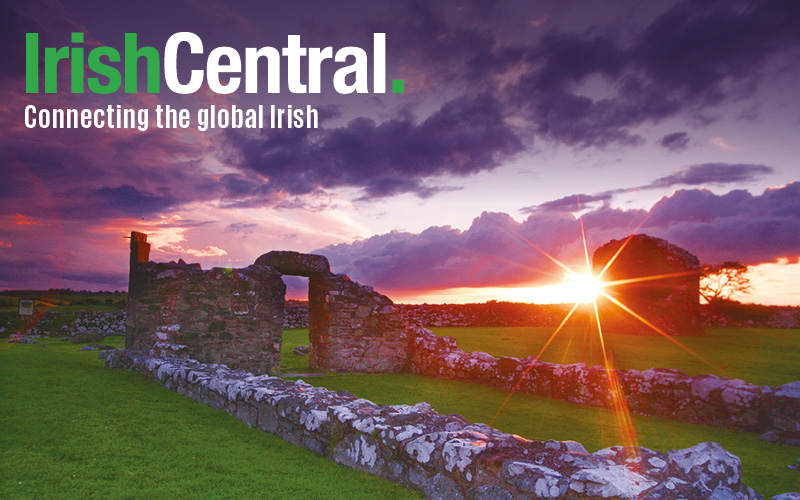Kevin Dillon has lived notable lives on many continents, from a Legal Officer in the South African Navy, to establishing Microsoft’s European Operations center in Dublin, which today employs over 1,900 staff.
Kevin is also a co-founder and Managing Partner at VC firm Atlantic Bridge, where for the last 10 years he has been building bridges for Irish and other European startups across the Atlantic and into China. Niamh Bushnell, Dublin Commissioner for Startups, spoke with Kevin about the VC fund’s mission to grow young companies, the inherent ambition of Irish companies and the strengths of Dublin as a tech capital.
Tell us a bit about how Atlantic Bridge was started?
The journey began in May 2004. I left a senior role as a European Executive at Microsoft and joined up with Brian Long, Elaine Coughlan, Gerry Maguire and Mark Horgan. We had all had long and successful careers in the tech industry, and had worked together in Ireland. Brian, Jerry, and Elaine had been in Parthus, and Mark had been in Mentec. We co-founded Atlantic Bridge and together built it to what it is now – we have €800 million under management and five different funds.
Was it an obvious thing to set up a VC fund in 2004?
The prevailing wisdom at the time was to put capital in venture or growth funds in the US. The ecosystem was very good there, while Europe hadn’t done as well. European companies, and Irish ones, in particular, did well in the early stages, but didn’t scale up as quickly as their US competitors. We believed we could address that problem. We created the Atlantic Bridge model to help Irish companies grow: scaling them across the Atlantic, introducing them to US customers and partners, and ultimately taking them public on NASDAQ or helping them get acquired by larger companies like Apple, Microsoft, Intel, etc.
Medtech firm Kastus secures €1.5m funding led by @atlanticbridgev https://t.co/0xQtaH7tO0
— The Business Post (@sundaybusiness) December 7, 2016
What have been the highlights of the journey so far for you, Kevin?
It has been a pleasure to build a great team that has worked together over a long period and has had notable successes. We’ve had an IPO and about 17 high-value exits. Our most recent ones are Metaio, a German company, which was acquired by Apple last May, and Movidius, a very strong Irish company in the computer visioning space, which was acquired by Intel for $375 million. The most rewarding aspect has been seeing a founder achieve a successful exit and then coming back to us with their next project to fund as well. We have a few of those stories in Ireland, the US and the UK.
And all of the founding partners are still working actively in Atlantic Bridge?
That’s right. We’re all working hard, and we’re still as excited about creating really good companies as we were 12 years ago. We’re thrilled to be based in Ireland and seeing great entrepreneurs, teams, and tech. The quality of deals in Ireland continues to improve. I sit in London and manage our European deals, which mostly cover Germany and the UK. Very often the companies we’re building out of those markets come to Ireland for many reasons. Quite often it’s either a data center or a development center; there’s almost always an Irish element to the companies that originated elsewhere. We’re in this for the long-term, and we’re very pleased to be able to invest and bridge to the US and now to China through our Irish-China Fund. One of the reasons Movidius got such a good exit was a cornerstone deal with DJI, the China drone maker that used the computer vision chip from Movidius for collision avoidance. It helped the company grow substantially.
Did you proactively go out looking for these business development opportunities for them?
Yes, and so did the other co-investors, like Brian Caulfield and his team. Everyone in the syndicate that invested in Movidius used their networks to help the company grow. The senior management team was built out in Silicon Valley. Brian Long, who is based in Palo Alto, helped them recruit all the right people. We then made the introduction to DJI through the China-Ireland fund.
Google partners with Movidius to bring machine learning to future mobile devices https://t.co/LQveskQXne v/ @ImDataScientist
— Hubert_edu (@Hubert_edu) December 4, 2016
Is your strategy to look for companies that have the ability to scale and grow large in the Chinese or US markets?
Yes, it is. We build our Irish companies to grow in the US and China and help them in any way we can: from making introductions to potential hires and customers and helping them negotiate contracts, all the way to acquisition support.
Can companies grow in China and the US at the same time?
Good question and yes, they can, but they have to manage it carefully like Movidius did. Early-stage companies can’t take on too many things at the beginning, so it’s a question of timing. What we would typically do is build a team in the US, while focusing on customer contracts in China initially. Only later would we consider a Chinese team as well.
Delighted to be hosting the launch night of #DublinAI this evening @TrinityResearch packed house here @dublinAI pic.twitter.com/18R8FD464M
— Atlantic Bridge (@atlanticbridgev) November 22, 2016
Going back to your role, what is the difference you see in young companies in different parts of Europe?
The European scene, including Ireland, tends to end up with definable clusters. To me, Ireland’s strengths are fintech and adtech companies. The credit for a lot of the software goes to people like Chris Horn, Bill McCabe, and others, who’ve built very successful companies in Ireland before. As a result, the country is very good at software. We also have a strong semiconductor history here. The fact they are clustered around Dublin is of great benefit to the city.
Germany tends to be strong in industrially-focused software and hardware: augmented reality, computer visioning, and wearable computing. The UK is very strong in artificial intelligence and fintech, just like Ireland.
What else is innate in the culture in Ireland that helps companies grow? Are we ambitious enough?
At Atlantic Bridge, we certainly see ambition in equal measure in Ireland to US-based startups. I don’t see Irish entrepreneurs as being any less ambitious, less hard-working, less committed, or less prepared to take risk than their US counterparts. The difference is that marketing comes more naturally to US startup founders: talking up what they’re doing in ways that allow them to be noticed. I think Europeans, in general, are a bit more culturally-reticent to do that. In countries like Germany, unless the product is built to perfection, no one talks about it. Whereas in the US, they say that if you’re not slightly embarrassed by your version 1.0 you’ve shipped it too late.
Ireland fits somewhere in the middle. It’s not as reticent as Germany but not as aggressive as the US. On the whole, I think Irish executives do extremely well in the US. It’s a natural progression and a natural fit. It’s harder there for founders from other European countries.
Irish entrepreneurs do seem to have a stronger cultural fit with the US.
Yes, and it’s certainly not just a language thing; it’s more a culture thing. It’s more reading the lingua franca of how to communicate. Continental European executives speak very good English, but are maybe less attuned to the cultural nuance. It takes a while for them to adapt to that in the US. Irish executives adapt very quickly.
We are delighted to partner with Oman Investment Fund to create the #OmantechnologyFund to focus on investing in Oman & the wider region pic.twitter.com/QE61xleVkr
— Atlantic Bridge (@atlanticbridgev) October 25, 2016
How have multinationals changed in the years since you were deep inside one? How do they see themselves and how should startups see them?
In 2002 I was the second chairman of ITC Ireland, a body that represented the software and hardware industries in Ireland. One of the concerns we had at the time was that there was very little crossover between the indigenous and multinational companies in Dublin. The multinational community dramatically improved the infrastructure and broadband, which benefited the indigenous companies. But back then, the multinationals did sales, manufacturing, operations, finance, licensing, and not much R&D. It was the indigenous companies that built the products in Ireland.
That has changed a lot. Google, Microsoft, and others are now doing core R&D in Ireland. Some of the people who leave the multinationals will end up in indigenous Irish startups, which would not have been the case 14 years ago.
Engaging multinationals in a valuable conversation with startups is a massive challenge. How does it work?
It can work, and we are engaged in that. One of the key ways we help startups grow is to introduce them to multinationals. At the growth stage, there’s a clear path, while earlier on it is a little harder. An interesting example is HyperGrid, an Irish company we “Atlantic-Bridged” into the US market. We introduced them to Microsoft in Seattle as a partner. While the company has a strong presence in Ireland, it is now headquartered in the US. They are doing a great job at showing value and engaging with Microsoft, having a collaborative partnership, and having common market strategies and PR.
The dialogue between a big multinational and a startup, Irish or otherwise, really has to be with the right part of the business unit. That can either be initiated by the VC investor, or it can be facilitated with the multinational locally. It usually falls to the venture arm of the multinational, though. It’s their role to look for interesting startups and introduce them to their business units back in the US. Microsoft Ventures, for example, has been present in Ireland for six months now.
So the way for Ireland to facilitate more engagement is getting to know the venture arms of the large companies, and working with the likes of us who have the contacts.
What are your thoughts on Brexit?
The issue with Brexit is a matter of uncertainty. What fundamentally attracts investment to a place is the quality of the teams and the technology. The UK has both, and that doesn’t change with Brexit. However, companies rely on being able to expand and hire people. Many of those hires tend to come from other Western and Eastern European countries, and they’re attracted to places like London and Dublin. With Brexit, the visa situation may become more challenging for the UK. The Irish and Dublin tech clusters will continue having the certainty of movement, which is a big advantage. Until the UK’s immigration policies are clearer, valuable engineers will prefer to go somewhere where they know they’ve got visa certainty.
Atlantic Bridge has a new University fund; it is the first time you are getting in the seed area, right?
Yes, it is. Seed investing is usually done as a standalone thing. It requires bringing together growth syndicates to take the journey further for the company. At Atlantic Bridge we also fund growth-stage companies, so we can invest in the most promising opportunities that come out of the seed fund. We can take the companies all the way through, give them global visibility and apply the networks we have in Palo Alto, London, Dublin and Beijing.
We have better visibility of whom early stage companies might ultimately have to compete with. We know what’s going on in other markets, which is much more difficult for a standalone Irish seed-only investor. We’re also able to do spend-ins, bringing promising startups from elsewhere to match them with teams in the Irish university system. It’s almost like a bridge into Ireland from the outside. We think all of that is what differentiates the way we’re doing seed. We have all of those things to bring to a seed company, which is unusual, and we hope that’ll be of benefit and bring much more accelerated growth.
.@atlanticbridgev Snr. advisor @janmuhlfeit begins today's positive leader seminar at @TrinityResearch #UniFund pic.twitter.com/DOAoAyUMJs
— Atlantic Bridge (@atlanticbridgev) September 13, 2016
One piece of advice for Ireland or Dublin as tech ecosystem?
If you’d asked me 10 or 15 years ago, I would have said there were too many early stage companies, all working, almost competing, with one another and not enough of a managerial talent pool to spread across all of them. There was excitement but not efficiency. That is no longer as big an issue. What is currently lacking in Ireland is a focused cluster approach. We think Ireland is starting to emerge in a couple of areas, but it’s probably too broadly dispersed to give full cluster benefit.
I don’t know whether you can improve that through public policy. Markets will do what they will, but I think we need to focus on a couple of areas and be recognized as a world leader in them. One way of doing that is to have a flagship company in that area. Movidius is that for computer visioning. It would be great to secure another IPO or two in other areas and really start to focus and deepen our resources in them.
---
This article appears courtesy of the Dublin Globe. For more stories on Dublin's tech scene and startup ecosystem, visit their website here.




Comments